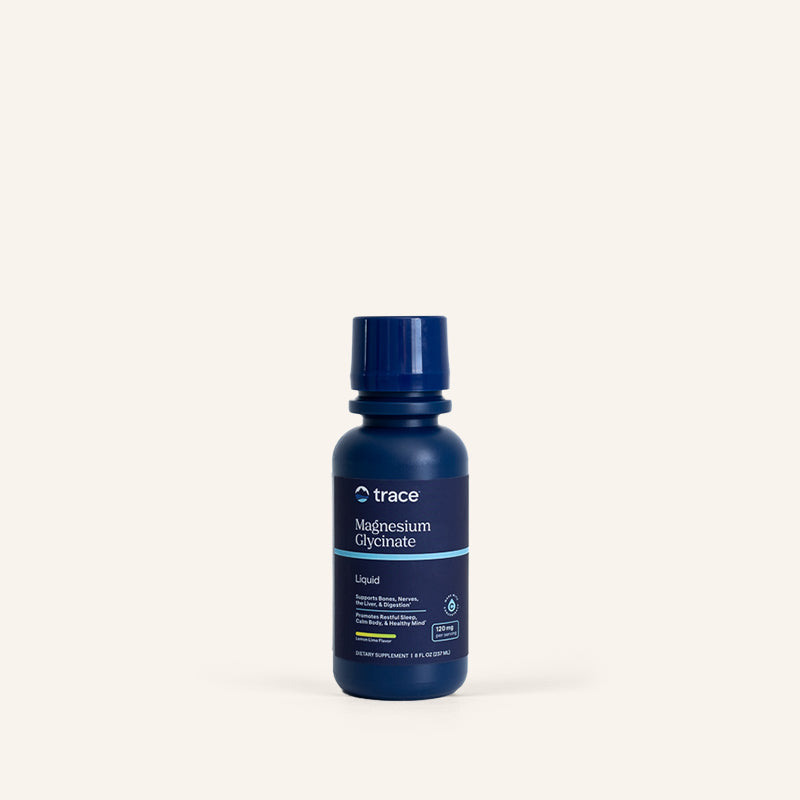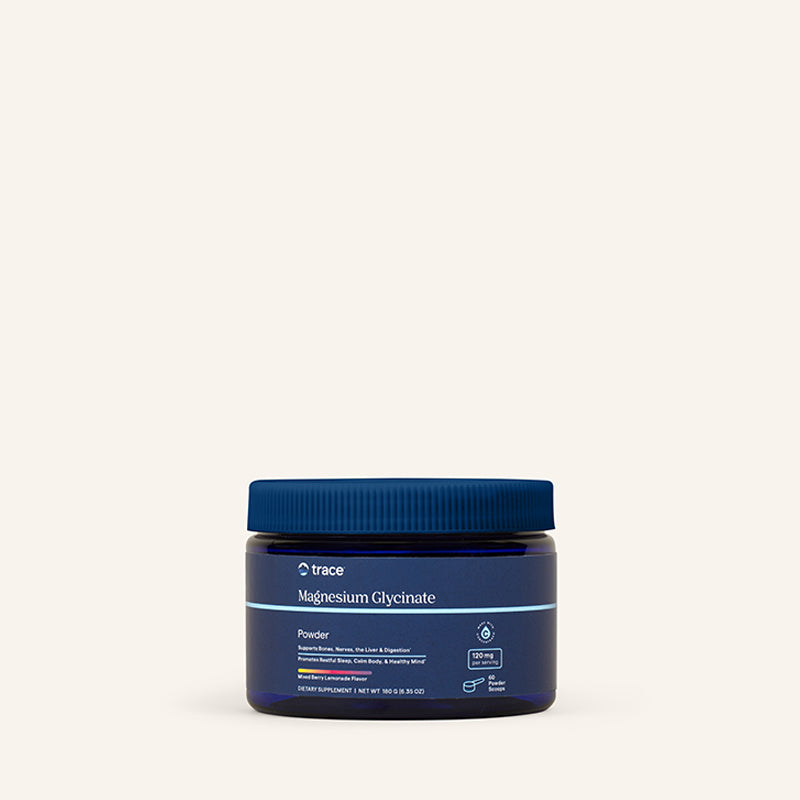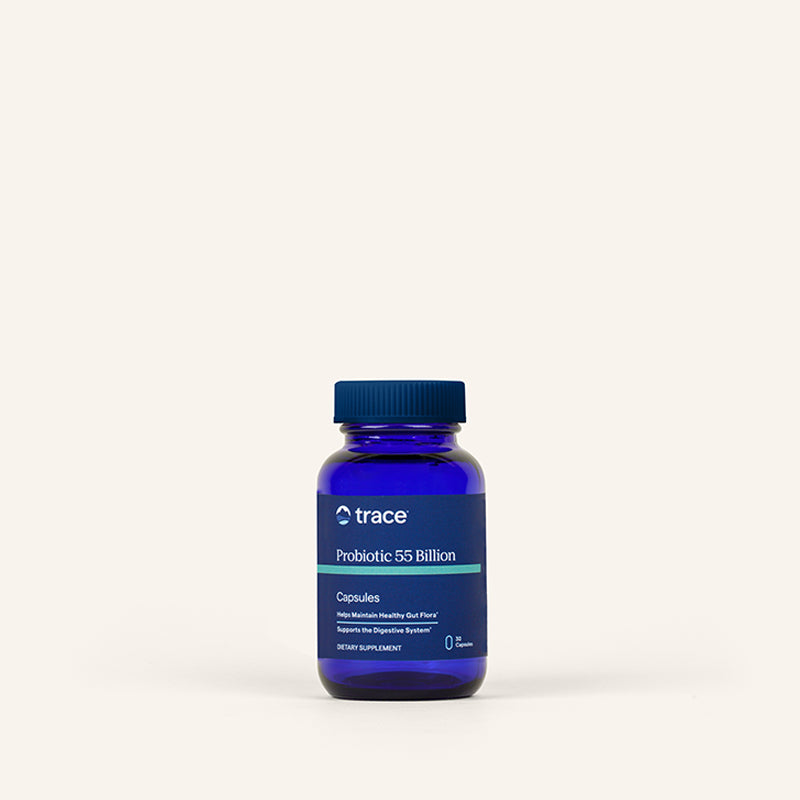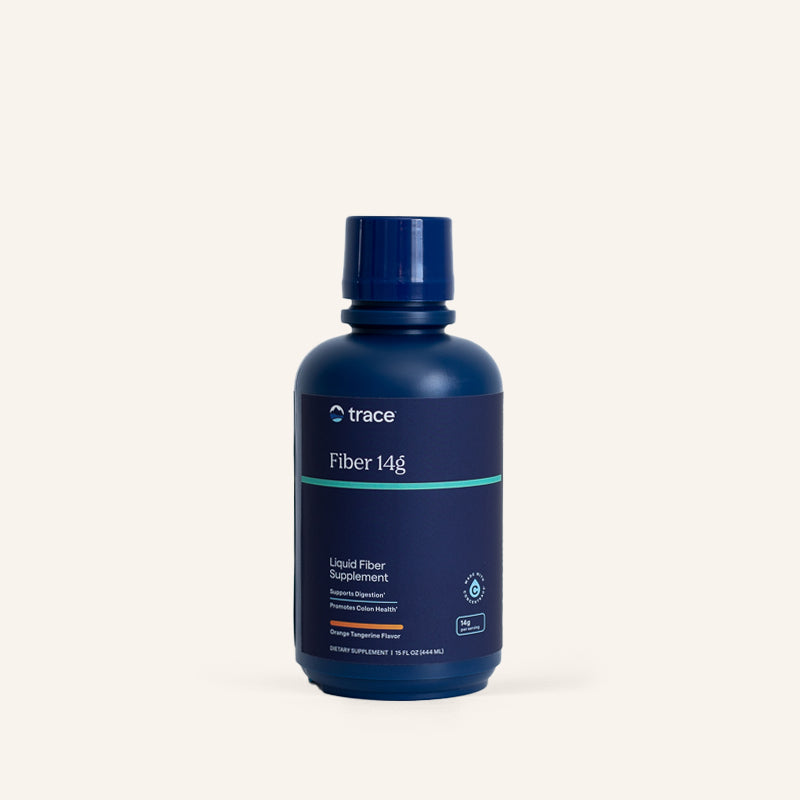Best Supplements For Gut Health
Harnessing scientific excellence and the finest natural resources, Trace Minerals produces supplements that can catalyze significant improvements in gut function, nutrient absorption, and overall vitality.
Filters
Filters
Key Takeaways:
- Gut Health is Essential: Optimal gut health is integral to overall well-being and is influenced by diet, lifestyle, and the right supplements.
- Supplement Wisely: Probiotics, prebiotics, and digestive enzymes are key supplements that can enhance gut microbiota balance, digestion, and nutrient absorption.
- Quality Matters: Choosing high-quality, sustainably sourced supplements like those from Trace Minerals, supported by ConcenTrace minerals, can transform gut function and vitality.
Understanding Gut Health And Its Importance
Gut health is fundamental to overall well-being and encompasses the balance of microorganisms in the digestive tract. Maintaining this balance is crucial as it directly influences digestion, immune function, and mental health. A well-functioning gut improves nutrient absorption, which provides the essential building blocks for energy, cell repair, and metabolic processes.
Consequences Of Compromised Gut Health
When the gut’s ecosystem is compromised, it can lead to issues such as bloating, constipation, diarrhea, and more serious conditions like Irritable Bowel Syndrome (IBS) and leaky gut syndrome. Additionally, poor gut health can negatively impact brain function, leading to mood disorders and cognitive disruptions.
The Role Of Gut Microbiota
The importance of gut health extends to the complex interplay between gut microbiota and human physiology. These beneficial microorganisms aid in breaking down food, synthesizing essential vitamins like B12 and K, and protecting against harmful pathogens.
Anti-Inflammatory Effects Of Healthy Gut Flora
A healthy gut flora produces anti-inflammatory short-chain fatty acids, further safeguarding against chronic diseases.
Our range of gut supplements can be trusted to aid in your journey towards a healthy gut. Minerals like magnesium, potassium, and zinc are crucial for the structural integrity of the digestive tract and the functioning of digestive enzymes. Trace Minerals offers a quality source of these essential elements. These minerals facilitate optimal nutrient absorption and contribute to the overall functioning of the digestive system.
Probiotics: The Gut-Friendly Bacteria
Probiotics are live microorganisms that offer many health benefits to the host when taken in adequate amounts. Among the best supplements for gut health, probiotics occupy a prominent place due to their ability to balance the gut microbiota. These beneficial bacteria are pivotal in maintaining a healthy digestive system, supporting immune function, and aiding in nutrient absorption.
How Probiotics Work
Probiotics introduce beneficial bacteria into the gut microbiome, promoting a healthy balance of gut flora. This balance is crucial for numerous bodily functions, including:
- Digestive Health: Probiotics can help break down food components that are harder to digest, reducing issues like bloating, gas, and constipation.
- Immune Support: A healthy gut flora can enhance the immune response, providing a first line of defense against pathogens.
- Nutrient Absorption: Certain probiotics can enhance the absorption of minerals and vitamins, ensuring that your body gets the most out of the nutrients you consume.
Types Of Probiotics
Not all probiotics are created equal. Different strains offer different health benefits, so choosing the right type for your needs is essential. Some commonly studied probiotics include:
- Lactobacillus: A well-researched strain that helps to maintain the integrity of the gut lining and prevents the growth of harmful bacteria.
- Bifidobacterium: This strain is known for breaking down complex carbohydrates, fats, and proteins into nutrients the body can use.
- Saccharomyces boulardii: A yeast-based probiotic that has been shown to aid in treating and preventing antibiotic-associated diarrhea.

The Role Of Supplements In Enhancing Gut Health
The role of supplements in the quest for optimal gut health cannot be overstated. Supplements offer a concentrated source of essential nutrients that support various functions within the digestive system, including promoting a balanced gut microbiome, enhancing digestion, and improving nutrient absorption.
Importance Of Probiotics
One of the cornerstones of gut health is the balance of good and bad bacteria. Probiotics, which are live beneficial bacteria, can help restore this balance, warding off digestive issues and boosting overall immunity. Commonly found in fermented foods like yogurt and kefir, probiotics can also be taken in supplement form, offering convenience and a higher concentration of these beneficial bacteria.
Significance Of Prebiotics
Prebiotics—specialized fibers that feed the good bacteria in your gut—play a significant role. Prebiotic supplements encourage the proliferation of beneficial bacteria, thus enhancing the gut environment. Foods rich in prebiotics include onions, garlic, and bananas, but prebiotic supplements are available for those who may not get enough through diet alone.
Benefits Of Digestive Enzymes
Equally important are digestive enzymes, which assist in the breakdown of food and facilitate the absorption of vital nutrients. People with digestive issues often lack sufficient digestive enzymes, leading to symptoms such as bloating and indigestion. Supplementing with digestive enzymes can mitigate these issues, promoting a smoother digestive process.
4 Best Supplements For Gut Health
Regarding improving gut health, the choices in supplements can be as varied as the gut microbiome itself. Here's a closer look at some of the most effective supplements:
1. Fiber 14g
Fiber 14g is a unique blend of inulin and organic acacia fiber from all-natural sources, available in a convenient and great-tasting liquid form. High-fiber diets have been shown to help prevent occasional constipation, support good colon health, and promote cardiovascular health.
- Supports healthy digestion and colon health
- Promotes cardiovascular health
2. Magnesium Glycinate Powder
Magnesium Glycinate Powder is a highly absorbable and bioavailable form of magnesium that benefits bones, nerves, and the digestive tract while being gentle on the stomach. It's known for supporting quality sleep and promoting healthy sleep patterns and REM cycles.
- Supports healthy sleep patterns
- Promotes calm muscles and mood
- Aids healthy digestion
3. Probiotic 55 Billion
Probiotic 55 Billion is formulated with 10 strains of viable organisms, including 11 billion bifidobacterium CFUs and 44 billion lactobacillus CFUs. These bacteria are most dominantly found in the large and small intestines. As intestinal flora often decreases with age, a probiotic helps maintain a healthy digestive system. Special delayed-release capsules prevent probiotics from being damaged by stomach acid, allowing them to reach the small intestine for maximum effectiveness.
- Helps maintain healthy gut flora
- Supports the digestive system
4. Liquid Magnesium Glycinate
Liquid Magnesium Glycinate is a highly bioavailable form of magnesium that benefits bones, nerves, and the digestive system while being gentle on the stomach. It's known for supporting quality sleep by promoting healthy natural sleep patterns and REM cycles.
- Supports healthy sleep patterns
- Promotes calm muscles and mood
- Aids healthy digestion
How To Choose The Right Supplement For Your Gut
Selecting the right supplement for gut health can be a transformative step toward improving your overall well-being. Here are some key factors to keep in mind:
1. Identify Your Needs
Understanding your specific gut health issues is crucial. Whether you are dealing with bloating, irregular bowel movements, or microbial imbalances, knowing your needs can help you choose a supplement that effectively addresses your problems.
2. Look For High-Quality Ingredients
Quality matters when it comes to supplements. Opt for products that contain clinically validated and high-quality ingredients. Probiotics, prebiotics, and minerals like zinc and magnesium can play pivotal roles in maintaining gut health.
3. Transparency And Certifications
Ensure the supplement you choose adheres to high manufacturing standards and has trustworthy certifications. This guarantees that what’s on the label is in the product and meets safety standards.
4. Read Reviews And Testimonials
Customer reviews and testimonials can offer valuable insights into supplements' real-world effectiveness. Look for feedback from individuals with similar gut health concerns to gauge the supplement's efficacy.
5. Consult Healthcare Professionals
Before adding any new supplement to your regimen, it’s advisable to consult with a healthcare provider. They can help you understand the potential benefits and interactions with your medications.
6. Prioritize Sustainability
Given the increased focus on environmental sustainability, look for supplements made from responsibly sourced ingredients. Brands like Trace Minerals, which harvests minerals sustainably from the Great Salt Lake, offer high efficacy while being kind to the environment.
Read also:
Frequently Asked Questions
Prebiotics are non-digestible fibers that serve as food for beneficial gut bacteria, helping them flourish. Probiotics are live beneficial bacteria that contribute directly to gut flora. Combining both can create a synergistic effect for optimal gut health.
Probiotics are live bacteria and yeasts that are beneficial to digestive health. They help balance the gut microbiome, improve digestion, boost immune function, and may even influence mood and mental health.
Digestive enzymes break down food into nutrients that your body can absorb. Supplementing with digestive enzymes can help alleviate digestive issues such as bloating, gas, and indigestion, especially if your body lacks sufficient natural enzymes.
Fiber adds bulk to stool, making it easier to pass and preventing constipation. It also serves as a prebiotic, feeding beneficial gut bacteria and promoting a healthy digestive system. Soluble fiber can also help regulate blood sugar levels and lower cholesterol.
Yes, vitamins such as Vitamin D, B vitamins (especially B12 and B6), and Vitamin C are crucial for maintaining a healthy gut microbiome. These vitamins support the immune system and cellular functions that aid in gut health.
Glutamine is an amino acid that helps maintain the integrity of the intestinal lining. It aids in repairing damage and can potentially help prevent conditions like leaky gut syndrome by supporting the gut's mucosal barrier.







